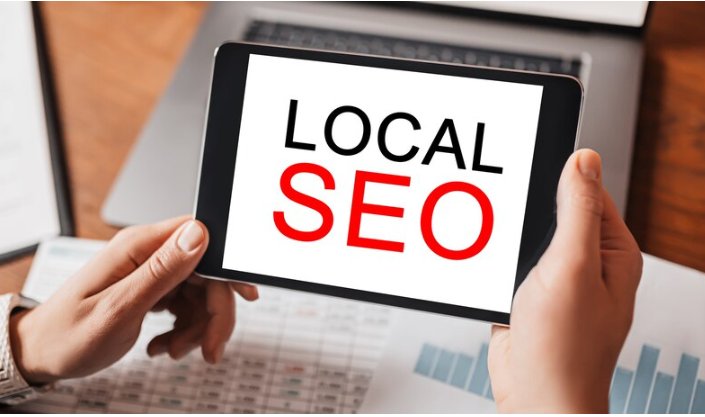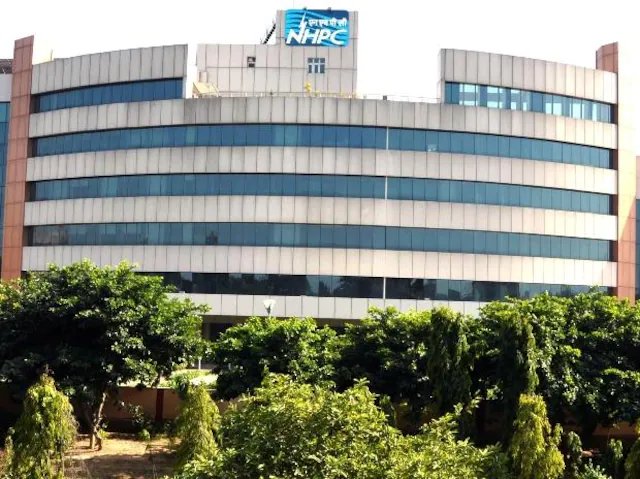How Can Google Local SEO Benefit Your Business?
In this article, we will delve into the various ways Google Local SEO can benefit your business, providing insights, strategies, and best practices to help you make the most of this invaluable marketing tool.

In today's digitally-driven world, having a strong online presence is crucial for businesses of all sizes. With the growing emphasis on localized search results, Google Local SEO has emerged as a powerful tool for businesses to target their local audience and increase their visibility in search engine results. By optimizing their online presence for local search, businesses can attract more relevant traffic, boost their brand visibility, and ultimately drive more customers through their doors. In this article, we will delve into the various ways Google Local SEO can benefit your business, providing insights, strategies, and best practices to help you make the most of this invaluable marketing tool.
What is Google Local SEO?
Google Local SEO is a strategy that helps businesses improve their visibility in local search results. It involves optimizing your online presence to rank higher when people search for products or services in their local area.
Why is Google Local SEO important for businesses?
Google Local SEO is crucial for businesses because it allows them to target customers in their specific geographic location. When potential customers search for products or services nearby, appearing in the top search results can significantly increase your chances of being noticed and chosen.
Understanding the Importance of Local SEO for Businesses
The impact of local search on consumer behavior
In today's digital age, consumers rely heavily on search engines to find local businesses. Studies have shown that a majority of people search online before making a purchase, and many prefer to buy from businesses near their location. Local SEO ensures that your business is visible to these motivated buyers when they're searching for what you offer.
Benefits of implementing local SEO strategies
Implementing local SEO strategies can bring several benefits to your business. It can increase your website traffic, attract highly targeted leads, and boost conversions. It also helps you build credibility and trust with local customers, as appearing in local search results adds legitimacy to your business.
How local SEO differs from traditional SEO
While traditional SEO focuses on improving website visibility globally or nationally, local SEO narrows the focus to specific geographic areas. It involves optimizing your website, online directories, and Google My Business listing with location-specific keywords, ensuring your business shows up when people search for local products or services.
Optimizing Google My Business Listing for Local SEO
Creating and claiming your Google My Business listing
To optimize Google Local SEO, you need to create and claim your Google My Business listing. It's a free tool that allows you to manage your business information and appear in Google Maps. Claiming your listing ensures you have control over how your business is portrayed online.
Optimizing business information and details
Optimizing your business information is crucial for local SEO success. Ensure that your business name, address, and phone number (NAP) are accurate and consistent across all online platforms. Add relevant keywords to your business description and include specific details such as business hours, accepted payment methods, and services offered.
Adding photos and videos to enhance your listing
Enhance your Google My Business listing with high-quality photos and videos. Visual content not only makes your listing more appealing but also helps potential customers get a better sense of your business. Showcase your products, premises, and satisfied customers to create a positive impression and stand out from competitors.
Implementing Local Keyword Research and Optimization Strategies
Importance of local keyword research
Local keyword research is crucial for targeting the right audience. By understanding how people in your area search for products or services, you can optimize your website and content to align with their search intent. This helps increase your chances of ranking higher in local search results.
Identifying relevant local keywords for your business
Begin by identifying relevant local keywords that potential customers might use to find businesses like yours. Utilize keyword research tools and consider location-specific terms, industry-related terms, and long-tail keywords. Incorporating these keywords throughout your website and content will help search engines understand your relevance to local searches.
Optimizing website content with local keywords
Optimize your website content with local keywords to improve your visibility in local search results. Include target keywords in your page titles, meta descriptions, header tags, and within the body of your content. However, always prioritize providing valuable and engaging content to your readers rather than over-stuffing keywords unnaturally.
Remember, implementing Google Local SEO can have a significant impact on your business's visibility and success. So, don't overlook the potential benefits it can bring to your brand.
Leveraging Online Reviews and Reputation Management for Local SEO
The impact of online reviews on local SEO
Online reviews have become a crucial aspect of local SEO. When people search for businesses near them, Google takes into account the quantity and quality of online reviews when determining search rankings. Positive reviews can boost your visibility, credibility, and ultimately attract more customers. On the other hand, negative reviews can have a detrimental effect on your local SEO efforts.
Encouraging and managing customer reviews
To leverage online reviews, encourage your satisfied customers to leave reviews on platforms like Google My Business, Yelp, and social media channels. Make it easy for them to provide feedback by including review links on your website and in email communications. Responding to reviews, both positive and negative, shows that you value customer feedback and helps build trust.
Responding to customer feedback and addressing negative reviews
Not all reviews will be positive, and that's okay. The key is to respond promptly and professionally to negative reviews. Address the customer's concerns, offer a resolution, and show your willingness to improve. Potential customers will see that you take customer satisfaction seriously, which can mitigate the impact of negative reviews on your local SEO.
Utilizing Google Maps and Geolocation for Local SEO Success
Setting up and optimizing your Google Maps presence
Claim your business on Google My Business and optimize your listing by providing accurate and up-to-date information. This includes your address, phone number, website URL, and business hours. Utilize relevant keywords in your business description and upload high-quality images to enhance your listing's appeal.
Utilizing geolocation targeting for local SEO
Geolocation targeting allows you to serve specific content and ads to users based on their location. This helps you target potential customers in your area with localized offers and promotions. By aligning your SEO strategy with geolocation targeting, you can increase your visibility to local searchers and drive more relevant traffic to your website.
Optimizing website for mobile and local searches
With the rise of mobile usage, it's essential to ensure your website is mobile-friendly and optimized for local searches. Use responsive design to ensure your website looks and functions well on different screen sizes. Incorporate location-specific keywords throughout your website, particularly in titles, headings, and meta tags. This will help search engines understand the relevance of your content to local searches.
Tracking and Analyzing Local SEO Performance with Google Analytics
Setting up Google Analytics for local SEO tracking
To track and analyze your local SEO performance, set up Google Analytics for your website. Create custom reports to measure key metrics like organic search traffic, conversion rates, and bounce rates specifically for your local audience. This data will provide valuable insights into how your local SEO efforts are driving traffic and conversions.
Monitoring and analyzing important local SEO metrics
Keep a close eye on metrics specific to local SEO, such as local search rankings, click-through rates on local listings, and the number of reviews and ratings. Monitor how these metrics evolve over time to identify trends and make data-driven decisions for your local SEO strategy.
Using data to make informed decisions and improvements
The data you collect from Google Analytics and other tools will help you identify areas where you can improve your local SEO efforts. For example, if you notice a high bounce rate for users coming from local searches, it may indicate that your website needs better optimization for local intent. Use data to refine your approach, experiment with different strategies, and continuously improve your local SEO performance.
Best Practices and Tips for Successful Google Local SEO
Optimizing website for local SEO-friendly URLs and meta tags
When optimizing your website for local SEO, ensure your URLs and meta tags contain relevant location-based keywords. This helps search engines understand the local relevance of your content. For example, instead of "www.example.com/services," use "www.example.com/services/new-york" to target customers in New York.
Building high-quality local backlinks and citations
Backlinks and citations from authoritative and locally relevant websites can significantly boost your local SEO. Seek opportunities to collaborate with local influencers, bloggers, or other businesses to earn quality backlinks. Additionally, ensure your business information is consistent across online directories, review sites, and social media channels to maximize your local SEO impact.
Engaging with the local community and leveraging social media
Engagement with the local community can help improve your visibility and reputation. Participate in local events, sponsor local initiatives, and engage with local organizations. This not only establishes your business as an active member of the community but can also generate positive mentions and social signals that contribute to your local SEO efforts. Don't forget to leverage social media platforms to share local news, promotions, and engage with your audience.
In conclusion, harnessing the power of Google Local SEO can have a significant impact on the success of your business in today's competitive landscape. By optimizing your online presence for local search, you can connect with your target audience, increase your visibility in search engine results, and drive more foot traffic to your physical location. It's essential to stay up to date with the latest trends and strategies in Google Local SEO to maintain a competitive edge. So, take the time to implement the tips and techniques outlined in this article, and watch as your business flourishes in the local market.
FAQ
What is the difference between local SEO and traditional SEO?
While traditional SEO focuses on improving a website's visibility on a global scale, local SEO specifically targets local search results. Local SEO aims to optimize a business's online presence to appear prominently in search results when users search for products or services in a specific geographic location. It involves strategies such as optimizing Google My Business listings, targeting local keywords, and leveraging online reviews to drive local traffic.
How long does it take to see results from Google Local SEO?
The timeline for seeing results from Google Local SEO can vary depending on various factors, including the competitiveness of your industry, the level of competition in your local area, and the effectiveness of your optimization efforts. Generally, it can take several weeks to a few months to start seeing noticeable improvements in your local search rankings. It's important to remember that SEO is an ongoing process, and consistent efforts are required to maintain and improve your rankings over time.
Can I do Google Local SEO myself, or should I hire a professional?
While it is possible to implement Google Local SEO strategies on your own, hiring a professional can often yield more effective and efficient results. SEO professionals have the expertise and experience to navigate the complexities of local search algorithms, conduct thorough keyword research, implement optimization techniques, and track performance effectively. Additionally, outsourcing your local SEO efforts allows you to focus on other core aspects of your business while leaving the technical aspects to the experts.
Is Google Local SEO only beneficial for brick-and-mortar businesses?
While Google Local SEO is particularly beneficial for brick-and-mortar businesses that rely on foot traffic and local customers, it can also be advantageous for service-based businesses that operate in specific geographic areas. For example, plumbers, electricians, and home service providers can optimize their online presence to target customers in their service area. Additionally, even e-commerce businesses can benefit from local SEO by targeting specific regions or cities to attract customers and gain a competitive advantage in those areas.












